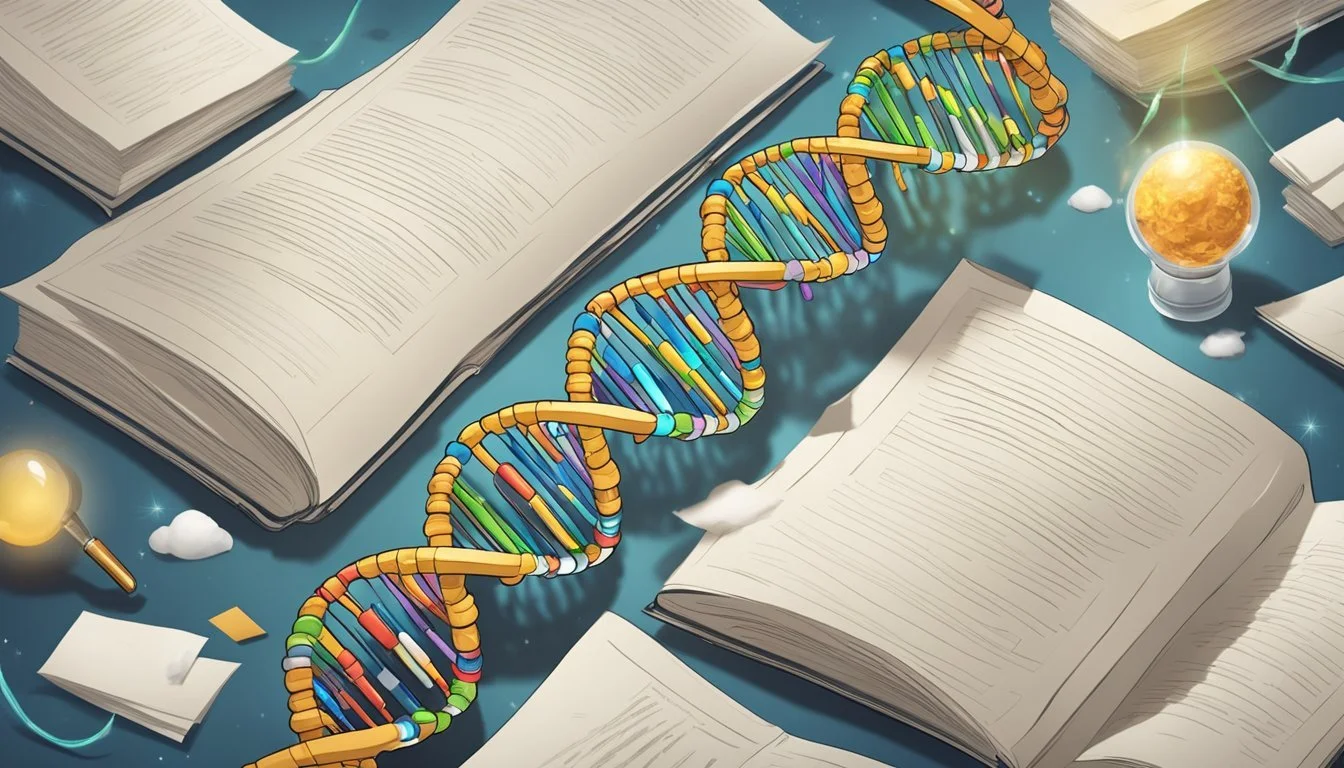7 Documentaries About Scientific Achievements That Changed the Course of History
Groundbreaking Discoveries on Film
Scientific documentaries offer a captivating window into groundbreaking achievements that have shaped our world. These films bring to life the stories of innovation, discovery, and perseverance behind history-altering advancements. By exploring pivotal moments in science, they illuminate the profound impacts these breakthroughs have had on human knowledge and society.
Documentaries about scientific achievements provide viewers with an engaging way to learn about the key developments that have propelled humanity forward. From unraveling the mysteries of the cosmos to decoding the human genome, these films showcase the relentless pursuit of knowledge that drives scientific progress. They offer audiences a chance to witness the excitement, challenges, and triumphs experienced by scientists as they push the boundaries of understanding and technology.
1) Cosmos: A Spacetime Odyssey
Cosmos: A Spacetime Odyssey is a groundbreaking documentary series that explores the wonders of the universe. Hosted by astrophysicist Neil deGrasse Tyson, this 13-part series serves as a follow-up to Carl Sagan's iconic 1980 show.
The series takes viewers on a journey through space and time, combining stunning visuals with expert scientific knowledge. It covers a wide range of topics, from the formation of the universe to the evolution of life on Earth.
Cosmos: A Spacetime Odyssey uses innovative storytelling techniques to make complex scientific concepts accessible to a general audience. The show features a mix of computer-generated imagery, animation, and live-action sequences.
One of the series' highlights is its use of the "Cosmic Calendar," which compresses the universe's 13.8-billion-year history into a single year. This helps viewers grasp the vast timescales involved in cosmic evolution.
The documentary not only educates but also inspires viewers to think critically about humanity's place in the cosmos. It emphasizes the importance of scientific inquiry and the pursuit of knowledge.
https://en.wikipedia.org/wiki/Cosmos:_A_Spacetime_Odyssey
2) Inside Einstein's Mind
"Inside Einstein's Mind" is a documentary that explores Albert Einstein's groundbreaking theory of general relativity. The film, which premiered on PBS NOVA in 2015, takes viewers on a journey through Einstein's thought experiments.
These experiments led to his revolutionary ideas about gravity and space-time. The documentary retraces the steps that Einstein took to develop his theory, which was published in 1915.
The film showcases how Einstein's work fundamentally changed our understanding of the universe. It demonstrates the power of imagination and creative thinking in scientific discovery.
Viewers gain insight into the genius of Einstein and the impact of his work on modern physics. The documentary presents complex scientific concepts in an accessible manner.
"Inside Einstein's Mind" offers a fascinating look at one of the most influential scientific achievements in history. It highlights how one man's ideas reshaped our view of reality and the cosmos.
More information about "Inside Einstein's Mind" on PBS
3) The Race for the Double Helix
"The Race for the Double Helix" is a captivating documentary that chronicles the discovery of DNA's structure. This film showcases the intense competition between scientists James Watson, Francis Crick, and Rosalind Franklin in the early 1950s.
The documentary provides a fascinating glimpse into the scientific process and the personalities involved. It highlights the groundbreaking work that led to one of the most significant scientific breakthroughs of the 20th century.
Viewers gain insight into the challenges faced by the researchers and the techniques they employed. The film also explores the ethical considerations surrounding scientific attribution and collaboration.
"The Race for the Double Helix" brings to life the excitement and tension of this pivotal moment in scientific history. It effectively illustrates how the discovery of DNA's structure revolutionized our understanding of genetics and heredity.
This documentary serves as an excellent educational tool for those interested in molecular biology and the history of science. It offers a compelling narrative that makes complex scientific concepts accessible to a broad audience.
[https://en.wikipedia.org/wiki/Life_Story_(film)]
4) The Day the Universe Changed
"The Day the Universe Changed" is a groundbreaking documentary series presented by science historian James Burke. It first aired on BBC1 in 1985, consisting of ten episodes that explore pivotal moments in Western history.
The series examines how scientific and technological breakthroughs have fundamentally altered our understanding of the world. Burke's engaging presentation style brings complex concepts to life for viewers.
Each episode focuses on a different scientific advancement and its far-reaching impact on society. Topics range from the invention of paper to the discovery of antibiotics, demonstrating how these innovations shaped modern Western thought.
The documentary series stands out for its interdisciplinary approach, connecting scientific progress to broader cultural and philosophical shifts. It illustrates how changes in scientific knowledge can transform entire worldviews.
"The Day the Universe Changed" remains a valuable resource for those interested in the history of science and its influence on human civilization. Its enduring relevance speaks to the timeless nature of scientific inquiry and its power to reshape our understanding of the universe.
Wikipedia: The Day the Universe Changed
5) Apollo 11
"Apollo 11" is a stunning documentary that chronicles the historic 1969 moon landing mission. The film uses newly discovered 70mm footage and audio recordings to provide an immersive experience of this monumental achievement.
Director Todd Douglas Miller meticulously reconstructs the events leading up to and during the mission. Viewers witness the massive scale of the operation and the intense preparation involved in sending humans to the moon for the first time.
The documentary captures the palpable tension and excitement as Neil Armstrong and Buzz Aldrin descend to the lunar surface. It offers a unique perspective on this pivotal moment in human history, showcasing both the technical challenges and the emotional impact.
"Apollo 11" stands out for its lack of narration or interviews, allowing the archival footage to speak for itself. This approach creates a sense of immediacy, transporting audiences back to 1969 to experience the moon landing as it unfolded.
The film received critical acclaim for its innovative storytelling and stunning visuals. It serves as a testament to human ingenuity and the power of collective effort in achieving seemingly impossible goals.
https://en.wikipedia.org/wiki/Apollo_11_(2019_film)
6) Particle Fever
"Particle Fever" documents the groundbreaking search for the Higgs boson at the Large Hadron Collider. The film follows six scientists as they work on the most expensive and complex experiment in history.
Directed by physicist-turned-filmmaker Mark Levinson, the documentary captures the excitement and tension surrounding the collider's launch. It offers viewers a front-row seat to a significant scientific breakthrough as it unfolds.
The film showcases the collaboration of 10,000 scientists from over 100 countries, all united in their pursuit of understanding the universe's fundamental mysteries. It highlights the highs and lows of scientific discovery, including the initial excitement and subsequent setbacks.
"Particle Fever" brings complex physics concepts to life for general audiences. It demonstrates how scientific endeavors can captivate and inspire, showcasing the human side of groundbreaking research.
The documentary received critical acclaim for its ability to make cutting-edge science accessible and engaging. It offers a unique glimpse into the world of particle physics and the dedication of those pushing the boundaries of human knowledge.
7) The Genius of Marie Curie
The Genius of Marie Curie: The Woman Who Lit up the World is a compelling documentary that explores the life and groundbreaking work of the renowned scientist Marie Curie. Directed by Gideon Bradshaw, this film offers a comprehensive look at Curie's revolutionary research in radioactivity.
The documentary highlights Curie's pioneering contributions to physics and chemistry, which earned her two Nobel Prizes. It delves into her discoveries of radium and polonium, and how these findings laid the foundation for modern oncology and nuclear physics.
Viewers gain insight into Curie's personal life, including the challenges she faced as a woman in the male-dominated scientific community of her time. The film portrays her determination and resilience in overcoming societal barriers and professional setbacks.
Through interviews with experts and historical footage, the documentary paints a vivid picture of Curie's impact on science and society. It showcases how her work continues to influence various fields, including medicine and technology.
The Genius of Marie Curie offers an engaging and informative portrait of a scientific icon whose discoveries transformed our understanding of the world.
IMDb: The Genius of Marie Curie: The Woman Who Lit Up the World
Impact of Scientific Documentaries
Scientific documentaries play a crucial role in bridging the gap between complex research and public understanding. They translate intricate concepts into accessible narratives, fostering scientific literacy and sparking curiosity among viewers.
Educational Influence
Scientific documentaries serve as powerful educational tools, reaching audiences beyond traditional academic settings. They simplify complex theories and experiments, making them comprehensible to a wide range of viewers. These films often feature engaging visuals and expert interviews, enhancing the learning experience.
Many educators incorporate documentaries into their curricula to supplement classroom instruction. Films like "The Ascent of Man" have become staples in science education, offering historical context and demonstrating the evolution of scientific thought over time.
Documentaries also help correct misconceptions and debunk pseudoscience. By presenting factual information from credible sources, they contribute to a more scientifically informed public.
Inspiring Innovation
Scientific documentaries often showcase groundbreaking discoveries and the scientists behind them, inspiring viewers to pursue careers in STEM fields. They highlight the excitement and potential impact of scientific research, encouraging young minds to explore these areas.
Films like "My Octopus Teacher" demonstrate the unexpected insights that can arise from dedicated observation and study. Such documentaries reveal the passion and perseverance required in scientific pursuits, motivating aspiring researchers.
By featuring diverse scientists and their work, documentaries help broaden representation in science. This visibility can inspire underrepresented groups to enter scientific fields, potentially leading to more diverse perspectives and innovative solutions.
Documentaries also raise awareness about pressing scientific issues, such as climate change or emerging technologies. This increased public awareness can drive support for scientific funding and policy changes.
Historical Context of Featured Documentaries
Scientific documentaries capture pivotal moments that shaped our understanding of the world. These films showcase the eras and discoveries that propelled humanity forward, highlighting the intellectual leaps that transformed society.
Significant Eras in Science
The Scientific Revolution of the 16th and 17th centuries marked a turning point in human knowledge. This period saw the rise of empirical observation and experimentation, challenging long-held beliefs.
The Age of Enlightenment followed, emphasizing reason and individualism. It fostered critical thinking and scientific inquiry across Europe and the Americas.
The Industrial Revolution of the 18th and 19th centuries brought rapid technological advancements. This era saw the birth of new fields like thermodynamics and electromagnetism.
The 20th century ushered in the Atomic Age and Space Age. These periods dramatically expanded our understanding of the universe and matter itself.
Pioneering Discoveries
Copernicus's heliocentric model revolutionized astronomy in the 16th century. It challenged the Earth-centered view of the cosmos, paving the way for modern astrophysics.
Darwin's theory of evolution by natural selection in the 19th century fundamentally changed biology. It provided a framework for understanding the diversity of life on Earth.
Einstein's theories of relativity in the early 20th century reshaped physics. They introduced new concepts of space, time, and gravity that continue to influence scientific thought.
The discovery of DNA's structure by Watson and Crick in 1953 opened up the field of molecular biology. It led to breakthroughs in genetics, medicine, and biotechnology.



